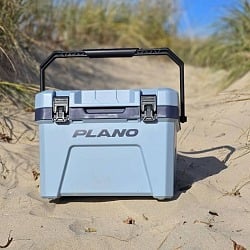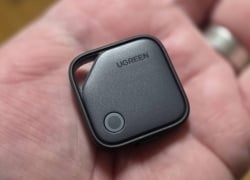-
UGREEN's New AI NAS Lineup Is What Power Users Have Been Waiting For
-
8 Ports, 200 Watts, One Outlet: The UGREEN Nexode 200W Brings Power Without the Burn
-
UGREEN Finder Duo Review: Finally A Tracker Tag That Does Exactly What I Need!
-
Watch2Care Vital Review: The First Smartwatch Built Around Traditional Chinese Medicine
-
Drinkmate OmniFizz vs SodaStream: Why This Premium Carbonator Is Worth The Upgrade
-
Transform Your Backyard into the Ultimate Guys' Night Venue with iLive's Outdoor Pop-up Movie Theater Kit
-
Securing Valuables in a Soft Top Jeep With a Security Box from 4 Wheel Parts
-
Packtalk Edgephones Enable Seamless Off Road Communication For Riders, Drivers and Spotters
-
Hillsound Crampons Are My Secret Weapon Against Icy Terrain
-
I Saved My Back With This Wild Badger Electric Snow Shovel!
-
Gourmia 2 Quart Soft Serve Ice Cream Maker Review
-
GrillBox 2.0 Review: Solid Build, Assembly Frustrations, and Why I Still Recommend It
-
Dreo 715 Review: How 3D Oscillation Beats Traditional Space Heaters
-
RUX 40L Review: Collapsible Gear Storage for Road Trips and Overlanding
-
OLIGHT ArkPro Ultra: A Multi-Function EDC Flashlight for Road Trips and Beyond
-
Heating and Cooling in One Unit: Dreo MC706 Hands-On Review
-
7 Best Cordless Drills for Winter Home Improvement Projects
-
8 Best Golf Laser Rangefinders for Confident Club Selection
-
11 Smart Home Upgrades That Actually Earn Their Keep
-
Holiday Gift Guide For Men: 20 Best Gifts for the Guy Who's Impossible to Shop For
















